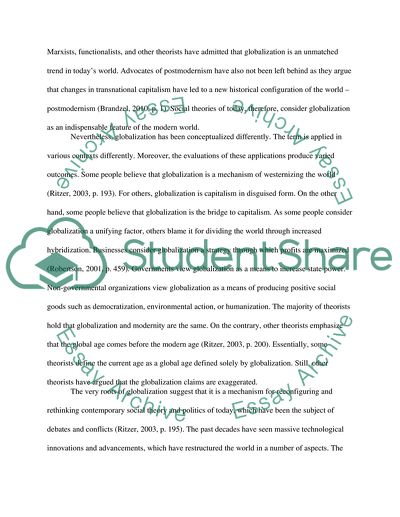Cite this document
(“Globalization and Postmodernity Essay Example | Topics and Well Written Essays - 4250 words”, n.d.)
Retrieved from https://studentshare.org/anthropology/1689016-is-globalization-nothing-more-than-a-fashionable-name-for-postmodernity
Retrieved from https://studentshare.org/anthropology/1689016-is-globalization-nothing-more-than-a-fashionable-name-for-postmodernity
(Globalization and Postmodernity Essay Example | Topics and Well Written Essays - 4250 Words)
https://studentshare.org/anthropology/1689016-is-globalization-nothing-more-than-a-fashionable-name-for-postmodernity.
https://studentshare.org/anthropology/1689016-is-globalization-nothing-more-than-a-fashionable-name-for-postmodernity.
“Globalization and Postmodernity Essay Example | Topics and Well Written Essays - 4250 Words”, n.d. https://studentshare.org/anthropology/1689016-is-globalization-nothing-more-than-a-fashionable-name-for-postmodernity.


